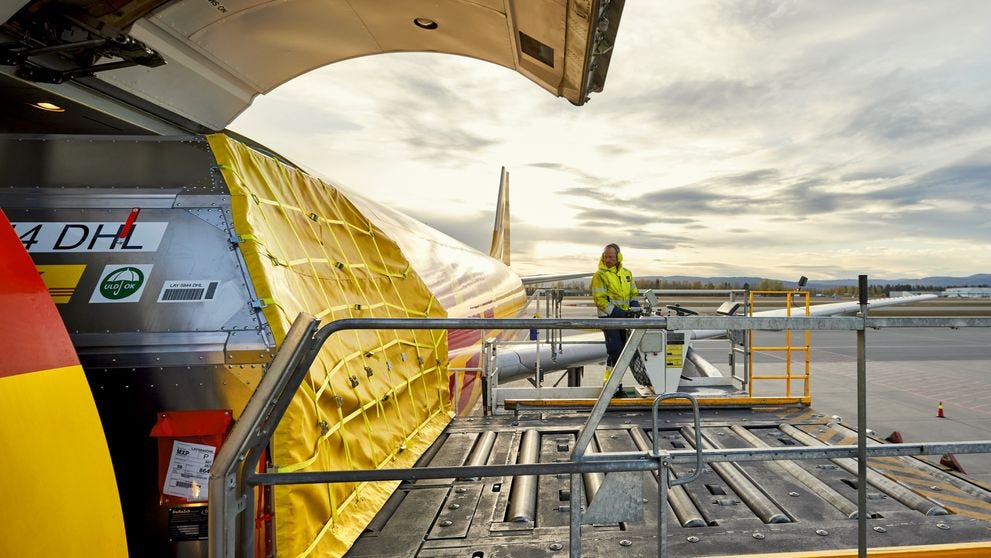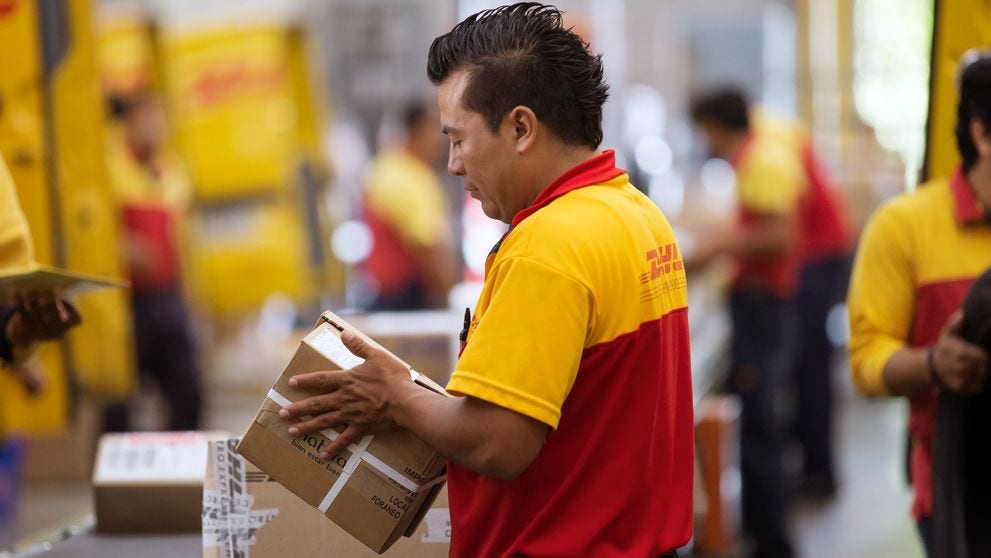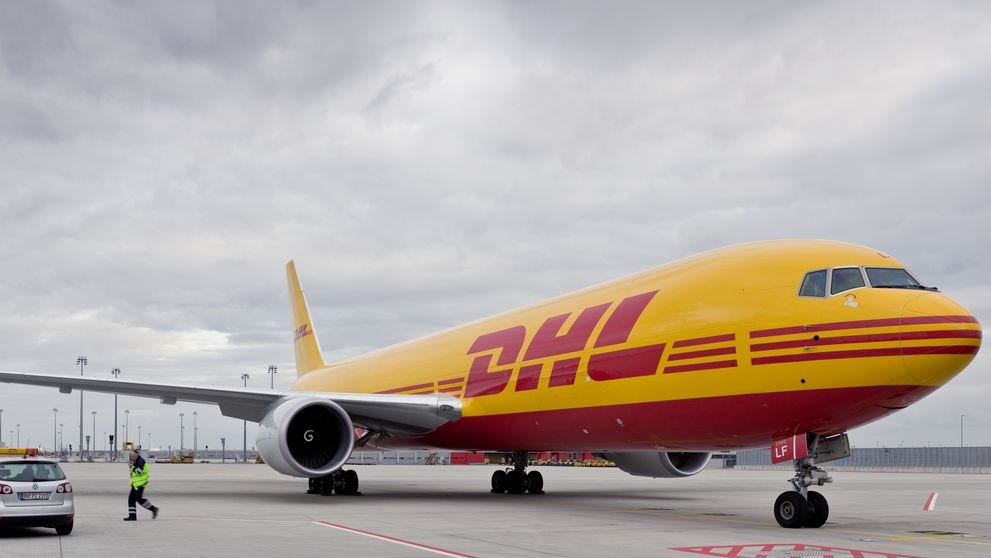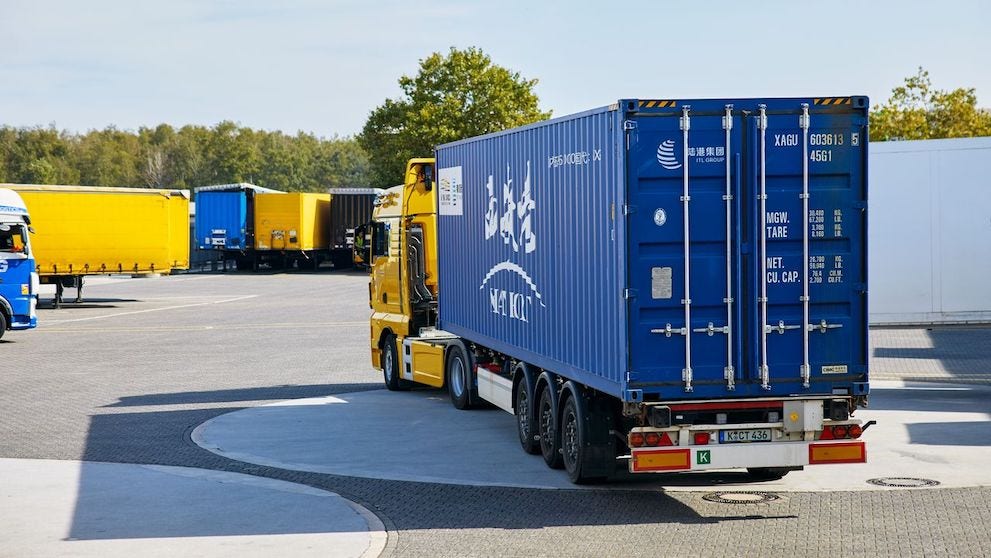A few essential customs document requirements deserve your attention as you prepare for the shipment phase. For businesses, import declaration into Taiwan may require (but are not limited to) the following items:
- Air waybill
- Commercial invoice
- Packing list
- Import permit
- Others - subject to laws and regulations governing corresponding articles
Let's delve into the three essential documents that anchor the import clearance process, ensuring a seamless journey through customs formalities.
Air waybill (AWB)
At the heart of international shipping lies the air waybill, an indispensable document. Packed within its confines are vital instructions and particulars crucial for secure transit. The AWB carries a dual purpose: affirming ownership of the shipped goods and furnishing sender and recipient details.
Often affixed externally by shipping companies, this document enables customs authorities to effortlessly access and verify critical shipment data. By accurately populating your waybill, you set the stage for uncomplicated and smooth shipping.
Commercial invoice
The commercial invoice serves as a formal payment request for goods sold across borders. Customs authorities rely on this document for clearance, requiring essential information like destination, payment method, and trade terms. Through the commercial invoice, customs officials also assess duties, taxes, and tariffs following their examination. A clear and precise invoice leads to smoother customs clearance, minimising delays.
Packing list
For official entries, a detailed packing list is crucial. It provides a concise inventory that matches customs requirements.
Given the list of documents to prepare, accurate and complete documentation is paramount to avoid unnecessary delays and additional costs in the shipping process. Ensuring precision in your paperwork helps prevent potential setbacks.
For businesses navigating unfamiliar shipping procedures, DHL Express Vietnam offers a wealth of customs expertise. Our experienced professionals guide you through the complexities, ensuring compliance with regulations and minimising any hurdles.
3. Navigating Taiwan’s customs regulations
When shipping goods to Taiwan, adherence to customs regulations is paramount. These regulations dictate the processes and requirements for the seamless movement of goods across borders.
Taiwan regulatory changes
As of July 1st, 2022, Taiwan Customs Authorities have implemented pre-registration and pre-clearance authentication for import shipments destined for consumers in Taiwan. This protocol is mandatory for both Business-to-Consumer (B2C) and Consumer-to-Consumer (C2C) shipments to Taiwan, excluding document shipments.
Private consumers, as consignees or importers, are hence required to download the EZWAY Customs application and register their mobile phone numbers. Upon creating the DHL Express Waybill to Taiwan, recipients in Taiwan will receive notifications via SMS/email and the EZWAY Customs application to pre-authenticate their shipments using the unique DHL Waybill Number. This process, known as the RNA, must be completed for each import shipment to facilitate customs clearance.
Import duty and taxes in Taiwan
As you navigate the intricacies of exporting goods beyond borders, a fundamental grasp of Taiwan's import tariffs is crucial. Taiwan abides by international trade agreements and structures its tariff schedule based on the globally recognised Harmonised Commodity Description and Coding System of the Customs Cooperation Council.
This code is an essential classification tool, encompassing a wide array of product categories. These universal designations, known as HS Codes, play a pivotal role in ensuring precision and consistency in classifying commodities across regulatory bodies, industries, and businesses.
This meticulous categorisation carries significant weight, especially when specific commodities necessitate additional licences or registrations. Should certain HS Code restrictions come into play, recipients must secure permits from the relevant agency.
However, the role of HS Codes goes beyond mere categorisation; it also determines tax rates, customs duties, and any distinct import/export prerequisites applicable to specific products.
Most goods also incur a 5% Value Added Tax (VAT), and Taiwan has established a de minimis threshold of NT$2,000. This means that goods exceeding this value are subject to the aforementioned 5% VAT payment, and goods valued below this threshold are exempt from import duties and taxes.
Import duties are calculated using the Cost, Insurance, and Freight (CIF) method, accounting for both the import value and shipping costs. Duty rates can range from 0% to 30% of CIF value.
And to calculate the import tax, use the formula: Import duty = duty rate x (value of goods + insurance costs + transport costs).
4. Recognise what can and cannot be shipped
In the context of Taiwan's customs regulations, specific products are subject to stringent guidelines or outright bans upon importation. These measures are implemented to safeguard public safety, security, and regulatory adherence for imported goods. It is imperative for Vietnamese businesses seeking to ship to Taiwan to have a thorough understanding of these restrictions to facilitate a smooth customs clearance process.
Outlined below are examples of items that are strictly prohibited from being imported into Taiwan:
- Drugs
- Firearms, ammunition, and knives
- Goods infringing upon the rights of patents, trademarks and copyrights
- Forgery-related tools, counterfeit coins, and security notes are explicitly restricted from importation
- Live wildlife or protected wildlife products
There are also several food-related restrictions and other controlled items that must be declared to the Taiwanese customs. These products include:
- Milled rice, roasted or prepared peanuts have a quantity limit of 1kg each. Those that go over the limit must have a permit issued by the Agricultural and Food Agency.
- Gold with an aggregate value of US$ 20,000 or more. For proper customs clearance, an import permit from the (Bureau of Foreign Trade) BOFT is necessary. The declared amount will be released according to the permit, and applicable taxes will be determined accordingly.
From the above, it is made clear that while goods are outrightly banned, certain restricted items may enter the country with the necessary government-approved licences and permits.
Therefore, it's essential to conduct your own research on the proper import procedures for these prohibited items before sending them to Taiwan. Failure to do so could lead to fines imposed on the receiving party of the mentioned goods.
5. Ensure proper packaging and labelling
Effective packaging and labelling play a crucial role in ensuring the safety and efficiency of your shipment. To achieve this, there are several important guidelines to follow:
- Ensure that the shipping label is fully visible on a single surface and does not obstruct any seams
- Avoid covering the shipment label with other labels, tapes, or additional paperwork
- If you choose to reuse a box, make sure to remove any outdated shipment labels before use
- Including a spare label within the package can help identify your shipment in case the original label is lost or damaged
- If you need to apply other labels, avoid placing them on the same surface as the shipment label
- To keep loose documents secure, consider using a plastic self-adhesive clear window pouch placed outside the box
Adhering to these guidelines helps prevent any issues that might lead to shipment rejection by customs. It's also essential to consider Taiwan's specific import requirements for packaging and labelling to ensure smooth clearance at customs.
Here are some of the specific labelling requirements that must be met when importing goods into Taiwan.
Products sold in Taiwan need to be labelled with:
- Name of the commodity
- Producer or manufacturer's name, phone number, and address
- Commodity's place of origin
- Importer's name, phone number, and address
Labels must include:
- Contents, composition, major components/ingredients, or materials
- Net weight, volume, quantity, and measurements
- Content information should be in Chinese using metric units
- Labels can have both metric and non-metric units
Hazardous or special products must have the following:
- Date of manufacture in Chinese (Taiwan or Gregorian calendar)
- Expiration date or term of validity
Following these recommendations will not only help your shipment reach its destination seamlessly but also facilitate compliance with Taiwan's customs regulations.
Ship from Vietnam to Taiwan with DHL Express
Exporting goods to Taiwan involves weaving through the various customs laws, regulations, duties, tariffs, and taxes. This intricate process can often be overwhelming. However, with our profound understanding of international shipping, DHL Express Vietnam's expertise can be leveraged to guide you through each step, making the process of shipping to Taiwan comprehensible and hassle-free.
Partnering with the right courier service provider, like DHL Express Vietnam, can guarantee a seamless parcel shipping and delivery journey for both you and your recipient. And DHL Express Vietnam stands as a prominent player in international express shipping, offering reliability and expertise that align with Taiwan's unique customs regulations. Our dedicated team is poised to support you at every juncture, addressing any hurdles you might face and ensuring a smooth transit of your shipments to Taiwan.
Open a business account to access our specialised proficiency in international shipping and delivery, meticulously crafted to cater to the needs of businesses in Vietnam.



















